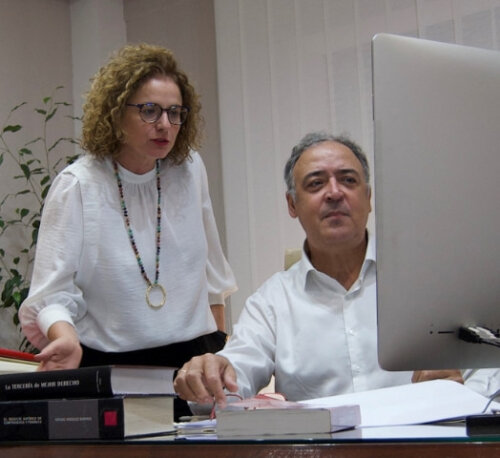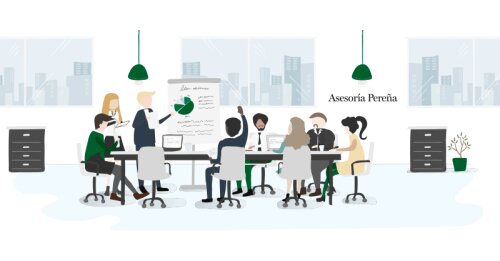Best ADR Mediation & Arbitration Lawyers in Salamanca
Share your needs with us, get contacted by law firms.
Free. Takes 2 min.
List of the best lawyers in Salamanca, Spain
About ADR Mediation & Arbitration Law in Salamanca, Spain
Alternative Dispute Resolution (ADR) is an increasingly popular way of resolving disputes outside the traditional court system in Salamanca, Spain. ADR encompasses methods such as mediation and arbitration, which help individuals and businesses settle disagreements more efficiently and amicably. Spanish law recognizes ADR as a legitimate and effective process for handling civil, commercial, and even some labor or consumer disputes. In Salamanca, these processes are governed by both national legislation and local regulations, ensuring that all parties involved have a clear, fair, and unbiased means to resolve their conflicts.
Why You May Need a Lawyer
While ADR aims to simplify dispute resolution and is generally less formal than court proceedings, there are still scenarios where legal assistance is important. If you are unfamiliar with Spanish law or ADR procedures, a lawyer can guide you through the process, protect your rights, and help you reach a favorable outcome. Common situations where legal help is advisable include:
- Complex commercial disputes involving contracts or business relationships
- Disagreements in inheritance or family law matters
- Employment or labor conflicts
- Conflicts between tenants and landlords
- Consumer protection issues
- International disputes involving parties from different countries
- When the other party has legal representation
- When you need advice on the binding nature of an arbitration award or a mediated agreement
- If a settlement reached through mediation or arbitration needs to be enforced in court
- When there is a significant amount at stake or a risk of unfair treatment
Local Laws Overview
ADR in Salamanca is primarily regulated by national laws, such as Law 5/2012 on Mediation in Civil and Commercial Matters and the Spanish Arbitration Act 60/2003. These laws establish clear standards for how mediation and arbitration must be conducted, including the qualifications of mediators and arbitrators, the requirement for voluntary participation, and the confidentiality of the proceedings. Salamanca also has ADR centers and local professional associations that provide certified mediators and arbitrators to facilitate the resolution process. For cross-border disputes, European Union legislation may also apply. Importantly, agreements reached through mediation can be made enforceable by court approval, and arbitration awards are generally binding and recognized by Spanish courts.
Frequently Asked Questions
What is the main difference between mediation and arbitration?
Mediation is a voluntary process where an impartial mediator helps the parties negotiate a mutually acceptable agreement. Arbitration is more formal, where an arbitrator hears both sides and makes a binding decision similar to a court judgment.
Are ADR proceedings confidential in Salamanca?
Yes, confidentiality is a cornerstone of both mediation and arbitration procedures in Spain, including Salamanca. The information disclosed is generally not admissible in other legal proceedings.
Do I need to have a lawyer represent me in ADR?
Although not strictly required, having a lawyer can help ensure your interests are fully protected, especially in complex or high-stakes disputes.
How long does an ADR process typically take?
ADR processes are usually faster than court litigation. Mediation can take just a few sessions, while arbitration may last several weeks or months, depending on complexity.
Is the decision from arbitration final and binding?
Yes, arbitration awards are generally binding and enforceable in Spain. There are very limited grounds for appealing or challenging an arbitration decision.
Can I choose my own mediator or arbitrator?
In most cases, the parties can agree on a mediator or arbitrator. If they cannot agree, professional ADR centers in Salamanca can appoint one.
What happens if the parties do not reach an agreement in mediation?
If mediation does not produce an agreement, parties can still resort to arbitration or proceed to court to resolve their dispute.
Does ADR apply to all types of disputes?
ADR is suitable for most civil and commercial matters but may not apply to criminal cases, certain administrative disputes, or cases affecting fundamental public interest.
How are the costs of ADR proceedings determined?
Costs vary depending on the complexity of the matter, the duration, and the professionals involved. Typically, parties split the costs unless otherwise agreed.
Can agreements reached through ADR be enforced by the courts?
Yes, mediated agreements can be submitted for court approval, making them enforceable. Arbitration awards can be directly enforced in Spanish courts.
Additional Resources
For those seeking more information or wishing to proceed with ADR in Salamanca, the following resources can be helpful:
- Salamanca Bar Association (Ilustre Colegio de Abogados de Salamanca): Provides information on lawyers specialized in ADR
- Local chambers of commerce: Often offer ADR services or can refer parties to qualified mediators and arbitrators
- Official State Gazette (Boletín Oficial del Estado): Source for current laws on mediation and arbitration in Spain
- Spanish Association of Mediation (Asociación Española de Mediación): Provides information on accredited mediators and mediation services
- Public ADR centers operating in Salamanca and the surrounding region
Next Steps
If you are considering mediation or arbitration to resolve a dispute in Salamanca, begin by gathering all relevant documents and identifying the key issues in your case. Consider consulting a lawyer specialized in ADR to assess your options and represent your interests in negotiations or proceedings. You can contact the local Bar Association for referrals, or approach reputable ADR centers in Salamanca. Clarify all costs and procedures with your chosen professional before starting the process. Taking these steps will help ensure that your experience with ADR is efficient, fair, and legally secure.
Lawzana helps you find the best lawyers and law firms in Salamanca through a curated and pre-screened list of qualified legal professionals. Our platform offers rankings and detailed profiles of attorneys and law firms, allowing you to compare based on practice areas, including ADR Mediation & Arbitration , experience, and client feedback.
Each profile includes a description of the firm's areas of practice, client reviews, team members and partners, year of establishment, spoken languages, office locations, contact information, social media presence, and any published articles or resources. Most firms on our platform speak English and are experienced in both local and international legal matters.
Get a quote from top-rated law firms in Salamanca, Spain — quickly, securely, and without unnecessary hassle.
Disclaimer:
The information provided on this page is for general informational purposes only and does not constitute legal advice. While we strive to ensure the accuracy and relevance of the content, legal information may change over time, and interpretations of the law can vary. You should always consult with a qualified legal professional for advice specific to your situation.
We disclaim all liability for actions taken or not taken based on the content of this page. If you believe any information is incorrect or outdated, please contact us, and we will review and update it where appropriate.















